As leaders around the world balance the very difficult decision of keeping an infective virus at bay with the very real economic needs of their countries, many people are suffering in different ways. It does not help to be an armchair critic. There are practical ways that we can help, and there are a number of ways you can be part of the solution. The key is to keep your ears open about what is happening around you. There are also very many active churches that are preparing food parcels as well.
I’m compiling this list of various charities you can donate to or get involved with. This is just a basic list and I know there are many more out there. Please leave your comments and suggestions after the post if you have more.
 If you’re living in Port Elizabeth there is a group that distributes a “hearty mix” which I’m also contributing to. You put together rice, lentils, soup mix, salt in a packet, label it and drop it off at various places around the city. (You don’t have to cook it) You can drop off on a Saturday between 9-10am:
If you’re living in Port Elizabeth there is a group that distributes a “hearty mix” which I’m also contributing to. You put together rice, lentils, soup mix, salt in a packet, label it and drop it off at various places around the city. (You don’t have to cook it) You can drop off on a Saturday between 9-10am:
Any queries? Contact Lezelle 0827462477
2. The Do More Foundation are dealing with 2 issues:
“The first was: How are the 10 million children who are part of the national school feeding programme going to receive the one meal a day that they often rely on as their only meal? The second was, how are parents and caregivers going to engage their young children during the lockdown?” says DO MORE FOUNDATION Executive and Trustee, Warren Farrer.
Working through its established network of partners including Unicef, the World Health Organisation and government departments, the DO MORE FOUNDATION has addressed the latter issue by compiling a range of material to assist parents and caregivers to constructively support and interact with children at home. It is sharing these free materials with community radio stations and across its social media platforms, and is encouraging other organisations and the general public to share these as widely as possible.
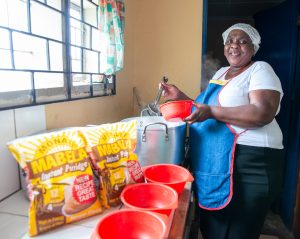 To address the growing hunger challenge, the DO MORE FOUNDATION launched a special-purpose #DoMoreFeeding initiative which focuses on providing food to vulnerable children and their families from households across South Africa.
To address the growing hunger challenge, the DO MORE FOUNDATION launched a special-purpose #DoMoreFeeding initiative which focuses on providing food to vulnerable children and their families from households across South Africa.
In a crisis like this, it is vital that food is distributed quickly and on a large scale, which is why the DO MORE FOUNDATION is partnering with reputable, trusted organisations that have existing reliable networks that reach vulnerable households. These include Save the Children, Kago Ya Bana (KYB), FoodForward SA, Afrika Tikkun, SA Harvest, the Domino Foundation, Meals on Wheels and Gift of the Givers. The Foundation is also using its Early Childhood Development (ECD) networks and partnerships such as TREE, ELRU, Cotlands, Siyakholwa and Diaconia in order to reach young children. In the longer term it will work with the National Department of Social Development’s implementing agents to coordinate food provision across provinces.
 Having successfully delivered over 1 million meals in just over a month is proof of the DO MORE FOUNDATION’s core belief that ‘Together we can DO MORE’. Through donations received and RCL FOODS’ own contributions, food to the estimated value of R4,8 million has been provided so far across 7 provinces. And this is just the start.
Having successfully delivered over 1 million meals in just over a month is proof of the DO MORE FOUNDATION’s core belief that ‘Together we can DO MORE’. Through donations received and RCL FOODS’ own contributions, food to the estimated value of R4,8 million has been provided so far across 7 provinces. And this is just the start.
“We encourage new donors to make use of our dedicated #DoMoreFeeding Covid-19 relief fund and be a part of this literally life-saving effort. Every cent is accounted for and donors can see the impact they are making by following the daily tracker on our website, that shows the number of meals donated to date.
For more information on the DO MORE FOUNDATION and the #DoMoreFeeding initiative, please visit https://domore.org.za/ or click here.
Stay updated on progress via “THE DO MORE FOUNDATION” Facebook page or click here.
Bank details for the #DoMoreFeeding initiative:
Account name: The Do More Foundation Trust – Covid-19 Feeding
Bank: RMB Corporate Banking (FNB) – Durban, 223 626
Account No: 62848932712
Use Reference: Covid19 Feeding
Swift Code (international payments): FIRNZAJJ
S18A letters provided upon request to support@domore.org.za
3.SPAR
If you are shopping at Spar, just place some extras in your trolley and then put them in the trolleys at the entrance as you leave. It’s a simple but effective way to help. It started in response to an #EggChallenge.
While the #EggChallenge of eating a raw egg, followed by a mouthful of sugar and then ending it off with a shot of brandy or rum is gaining popularity online as people become increasingly bored, Good Things Guy and SPAR have teamed up to turn this on its head.
“SPAR Group has come on board to assist me with my #EggChallenge nomination by placing a shopping cart outside of every SPAR store for you to #SPARdonate. This entails donating a six-pack of eggs, 1 kilogram of maize and 1 litre of milk to the most vulnerable of South Africans,” says Good Things Guy founder, Brent Lindeque.
SPAR is placing shopping carts outside all of its stores for people to make these donations and encourage all South Africans to take part.
“Instead of eating raw eggs, let’s give a homeless man or poor child a meal and nominate friends to do the same,” says Lindeque.
To drive the reach and impact of this initiative even further, SPAR will also donate R1 for every time someone uses or shares the #SPARdonate to the SPAR Southern Lodestar foundation feeding scheme, which has a proven history of feeding, nurturing and growing communities through knowledge and nutrition.
“Right now, there are millions of South Africans who are going to bed hungry, but we have the ability to help. Let’s do good together and help feed the nation rather than sucking eggs,” concludes Lindeque.
4. SDI Force
This organisation is an excellent example of people who have taken circumstances and turned them around to help others. They repurpose people unable to work because of the lockdown and use them for something else. For instance, the Sweep South cleaners, who I have used successfully (I had one of these ladies cleaning the day before I moved, which really helped) are now being trained to sanitise offices.
They also do food parcels and if you have a training skill you can get in touch with them too. See their website. You can also follow them on Facebook.
This is from a press release I received:
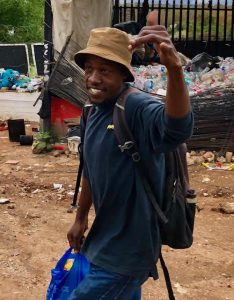 Extraordinary times call for extraordinary measures. When it became evident that Covid-19 would usher in a harsh reality for South Africans, Brad Fisher and Andile Ramaphosa, co-founders of Supplier Development Initiatives (SDI), moved quickly to repurpose this platform-based organisation. Prior to the pandemic SDI had, with FNB’s backing, secured a large deal known as Alex 1000. This project saw big corporates in Sandton both contracting micro service providers in Alex through enabling platforms like Bolt, Loadit, Uber, SweepSouth, Aweh Africa, Fixit, WastePreneurs and PromoForce, and ultimately investing in thousands of these businesses.
Extraordinary times call for extraordinary measures. When it became evident that Covid-19 would usher in a harsh reality for South Africans, Brad Fisher and Andile Ramaphosa, co-founders of Supplier Development Initiatives (SDI), moved quickly to repurpose this platform-based organisation. Prior to the pandemic SDI had, with FNB’s backing, secured a large deal known as Alex 1000. This project saw big corporates in Sandton both contracting micro service providers in Alex through enabling platforms like Bolt, Loadit, Uber, SweepSouth, Aweh Africa, Fixit, WastePreneurs and PromoForce, and ultimately investing in thousands of these businesses.
“Of the 50,000 micro traders associated with SDI, there was huge concern about the wellbeing of the lowest 10,000 income earners”, says Fisher. “These are mainly informal traders like waste pickers, car guards and traffic traders who live hand-to-mouth.” These individuals needed immediate assistance, but SDI was also in a 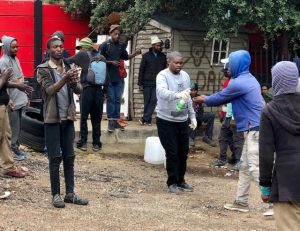 position to play a larger role in the fight against the pandemic. “The big idea was to take SDI’s existing model – effectively aggregating micro enterprises that operate through the likes of Uber – and adapt this into a coordinated effort to combat the negative effects of the nationwide lockdown,” explains Ramaphosa. To achieve this, SDI Force was immediately setup as a non-profit initiative with a three-phase approach.
position to play a larger role in the fight against the pandemic. “The big idea was to take SDI’s existing model – effectively aggregating micro enterprises that operate through the likes of Uber – and adapt this into a coordinated effort to combat the negative effects of the nationwide lockdown,” explains Ramaphosa. To achieve this, SDI Force was immediately setup as a non-profit initiative with a three-phase approach.
The first has been the emergency food pack relief for the most vulnerable traders, the ‘invisible economic sector’ that had unfortunately fallen between the cracks. SDI Force developed an effective PPP with the City of Johannesburg, Unity Values and Momba Foundation to safely distribute close to 9,000 food packs (450,000 individual meals) at sites like Innesfree Park, Sandton Field and Study Centre, Power Park Dam, Orlando East, Motsoaledi informal settlement, Orange Farm, Kwa Mai Mai, Maboneng and Turffontein. This effort proved critical in sustaining these people through the most trying of times.
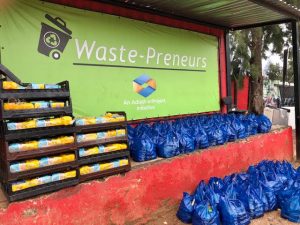 Secondly, SDI Force has worked hard to ensure that these traders are Covid-compliant, equipping them with Personal Protective Equipment PPE, additional equipment and training that has enabled them to work safely and in line with the restrictions currently in place.
Secondly, SDI Force has worked hard to ensure that these traders are Covid-compliant, equipping them with Personal Protective Equipment PPE, additional equipment and training that has enabled them to work safely and in line with the restrictions currently in place.
The third phase involves getting these micro traders back to work, fighting the good fight against the spread of the virus. “As the pandemic progresses, it has become evident that frontline workers need bolstering,” says Fisher. “SDI Force has collaborated with best-practice stakeholders to develop uniquely South African solutions to address the challenges this lockdown poses to SMMEs and the economy. As such, SDI Force has shifted to focus on getting our micro suppliers back to work.” This involves specialised training that, for example, helps turn waste pickers into frontline Covid-busters, fitted with industrial sanitizer spray-packs and hazmat suits, and are taught how to disinfect public spaces like taxi ranks.
A top training company has been commissioned to purpose-build a Covid-compliant training course, currently being approved by the Covid authority. Through this, these ‘micro warriors’ will be enabled to safely distribute product and services such as:
- Transporting medical staff to work (Bolt / Uber)
- Delivering food (Bolt Food)
- Delivering heavy equipment such as medical tents and hospital beds (Loadit)
- Dispensing medical tests and hospital beds (Tradeway Promotions)
- Spraying both industrial and commercial spaces (SweepSouth)
- Developing surveys and data capture for information dissemination (Aweh Africa)
For more information on SDI and contacting SDI micro suppliers go to: www.sdiforce.co.za
Go to the donations page on www.sdiforce.co.za to help purchase the personal protective equipment needed for these professionals to operate in a Covid-compliant manner.
5. Make Masks
If sewing is your thing, this is something you can do to help. South African couple Bruce and Kimlyn Harbotle have started an initiative called Masks for South Africa which encourages anyone with this skill to make masks for themselves and their community.
They have a pattern on their website and you can contact them about details about where to distribute.
This website was one of the first set up for Clovid relief. Although it works closely with government and business it is independently administered by Old Mutual. You can still donate here.
You can also read their news and updates here.
7.Urgent Donations Appeal for Forgotten Angle Theatre Collaboratives ANGEL PROJECT
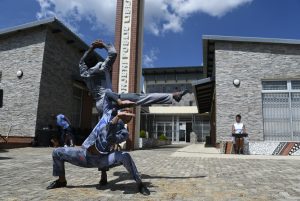 FATC’s #ANGELPROJECT aims to sustain 200 households (800 to 1000 individuals) with a monthly Sustenance Parcel including:
FATC’s #ANGELPROJECT aims to sustain 200 households (800 to 1000 individuals) with a monthly Sustenance Parcel including:
– food
– sanitary products
– masks
– hand sanitiser
FATC is staging an emergency intervention in direct response to the arrival of Covid-19 and the devastating socio-economic impacts, resulting from the necessary lockdown, on local residents on the margins in rural Emakhazeni. This intervention is in support of those whose disproportionate disadvantages have been magnified in this covid-19 crisis.
You can find all the details over here ➡️ https://bit.ly/36dHv32
PJ Sabbagha
+27 82 560 9687
Artistic and Managing Director
I also found these two useful posts:
Eight Local Charities You Can Donate To
Here’s how you can help (Business Insider: this one also has good ideas about donating blood and giving of your skills virtually)
Do you have anything to add? Please leave your suggestions in the comments.
If you found this post interesting please share it with your friends and remember to follow us on Facebook, Twitter, Pinterest and Instagram and join our awesome group called Mommy’s Me Time.

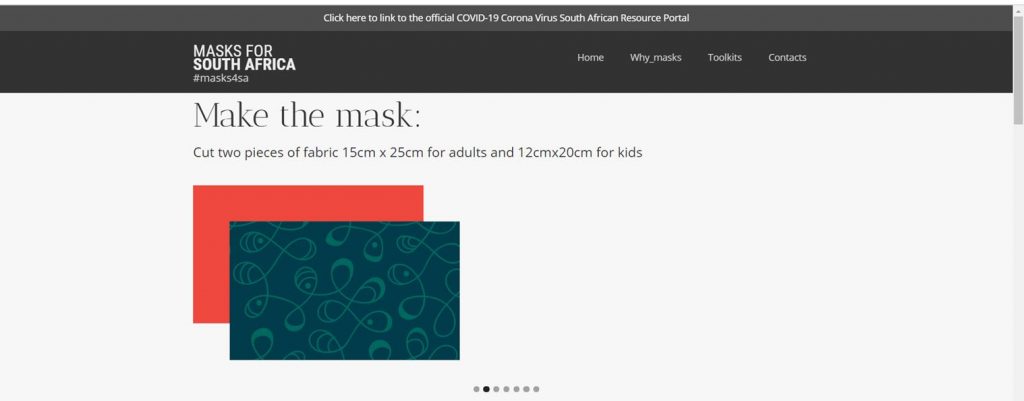




This is such a beautiful and handy post. We all need to do our bit.